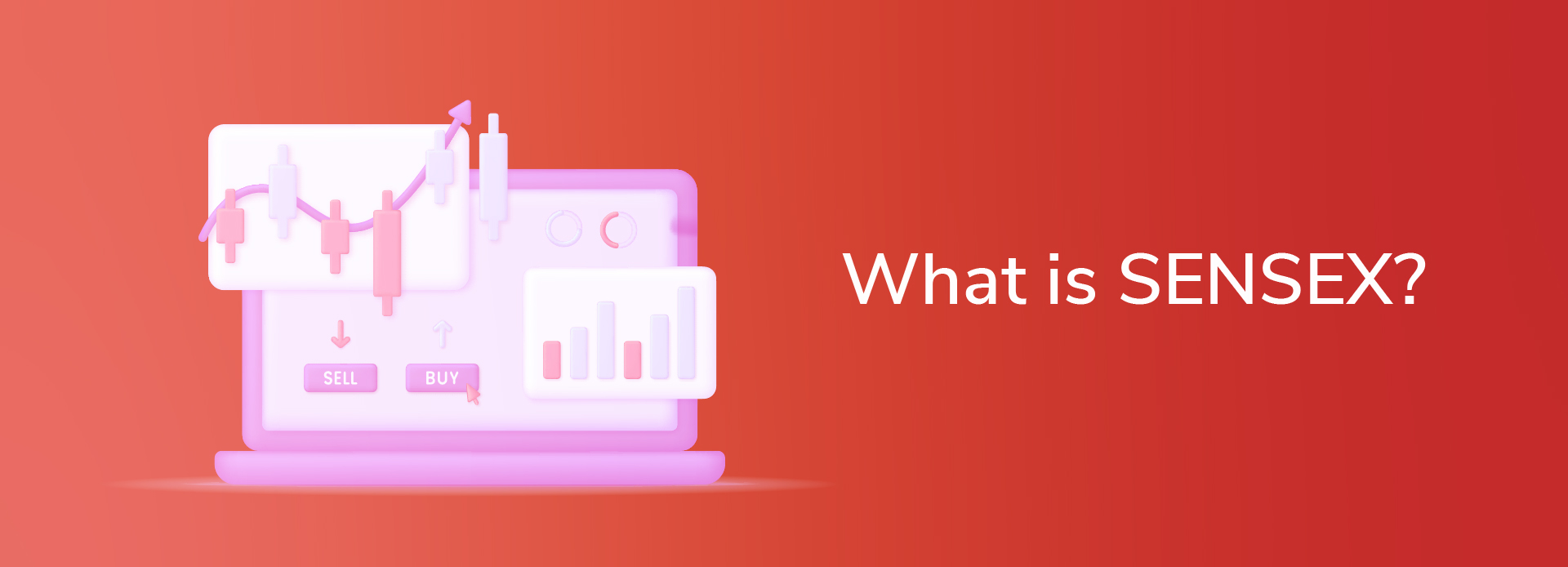
What is SENSEX?
03 June 2024 | By INDIE
If you are interested in investing in stocks and other securities, you must carefully track changes in the SENSEX to adjust investment strategies accordingly. Many people find themselves dealing with the complexities of the stock market without a clear understanding of what the SENSEX truly represents. However, if you are new to investing, you must first explore the question, “How to invest in stocks.”
This knowledge gap underscores the importance of unraveling the mystery surrounding the SENSEX. So what exactly is the SENSEX, and why does it hold such significance? Let's demystify this crucial aspect of financial markets in this blog post.
What is SENSEX?
The SENSEX, short for ‘Sensitive Index’, is the benchmark stock market index of the BSE (Bombay Stock Exchange) in India. It comprises a select group of stocks representing various sectors of the Indian economy. Essentially, the SENSEX serves as a barometer, reflecting the overall performance of the Indian stock market.
To understand the BSE SENSEX better, you must grasp its composition and calculation method. The index consists of a predetermined set of stocks from different industries, chosen based on market capitalization, trading volume, and other criteria. These stocks are typically market leaders and highly liquid, meaning they're actively traded in the market.
How is SENSEX Calculated?
The calculation of the BSE SENSEX involves a precise methodology designed to reflect the performance of the Indian stock market accurately. At its core, the SENSEX is a market capitalization-weighted index, meaning that the stocks included in the index are weighted based on their market values.
Here's a simplified overview of the steps involved in calculating the SENSEX:
1. Selection of Constituent Stocks
The SENSEX comprises a select group of stocks chosen from various sectors of the Indian economy. These stocks are typically market leaders and represent the overall market.
2. Market Capitalization Calculation
The market capitalization of each constituent stock is calculated by multiplying its market price by the total number of outstanding shares. This figure represents the total market value of the company.
3. Index Base Value Adjustment
The SENSEX has a base value that serves as a reference point for measuring changes over time. Any adjustments to the base value are made to account for factors such as stock splits, bonus issues, or other corporate actions.
4. Calculation of Index Value
Once the market capitalization of each constituent stock is determined, the index value is computed using a weighted average formula. This formula considers the market capitalization of each stock relative to the total market capitalization of all stocks in the index.
5. Regular Review and Rebalancing
The SENSEX composition is periodically reviewed and adjusted to ensure that it remains representative of the evolving Indian market landscape. Stocks may be added or removed based on predefined criteria such as liquidity, market capitalization, and sector representation.
Recommended Read: Navigating the Stock Market: 5 Crucial Tips to Successful Investing
Start your Investment Journey
If you don’t know how to invest in Stocks, here's a breakdown of the major steps to take:
Open a Demat Account
You must have a Demat (Dematerialized) account that serves as the digital repository for holding your shares and securities in electronic form, eliminating the use of physical share certificates.
Open a Trading Account
Once you have a Demat account, the next step is to open a trading account. Since the BSE doesn't facilitate direct purchase or sale of securities, a trading account is indispensable. This account acts as your gateway to the stock market, enabling you to buy and sell securities online with ease and convenience.
Have a Bank Account
In addition to the Demat and trading accounts, you must have a bank account and a PAN card. These are essential prerequisites for trading on any of the stock exchanges in India. Your bank account is the medium for fund transfers and settlements related to your stock market transactions.
Disclaimer: The information provided in this article is generic and for informational purposes only. It is not a substitute for specific advice in your circumstances. Hence, you are advised to consult your financial advisor before making any financial decision. IndusInd Bank Limited (IBL) does not influence the views of the author in any way. IBL and the author shall not be responsible for any direct/indirect loss or liability incurred by the reader for making any financial decisions based on the contents and information.





